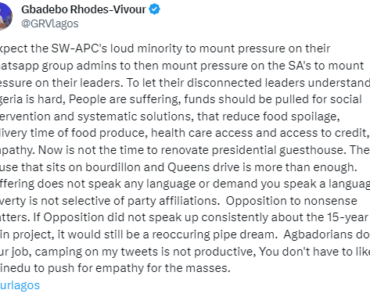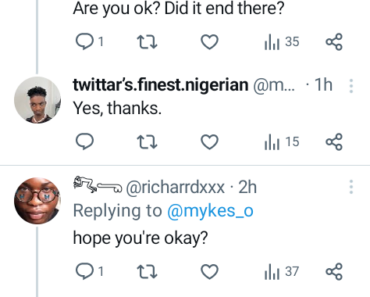[ad_1]
SEO (or referencing) is synonymous with Search Engine Optimizationand it describes the logic behind how websites rank when you search on a particular search engine.
Although it may seem tedious and painful at first, SEO can be quite fun and easy to implement.
In this beginner’s post, I’ll give you an overview of search engine optimization, define what SEO is, and the key areas you should focus on to get better rankings.
Note: If you are looking to hire an SEO expert, then look no further. I got a perfect score of 5/5 on Upwork from 14,478 freelancers. Message me at ale (@)flux(.)la or check out my Upwork profile.
For visual learners, here is a cool and simple video that describes SEO in detail.
What is SEO in a nutshell and what does it do?
With over 1.3 billion websites in existence today, how can you make sure people find you when they search Google, Yahoo, Baidu or Bing?
In short, SEO can be defined as a marketing technique that helps increase the quantity and quality of traffic to your site.
SEO (or Search Engine Optimization) outlines a series of steps you can take to rank higher on Google and get free organic traffic from various search queries.
Note that I said steps, which means that as long as you follow each of the steps (and are patient), you will notice great results.
The best way to understand SEO these days is to break down what it means. In this way, SEO is:
- A marketing discipline – understanding SEO is crucial for all your marketing efforts because this way you will be able to drive traffic to your website and generate leads and conversions. You not only need to write content that Google likes, but also content that will resonate with your audience.
- A technical task – knowing best practices for optimizing your content and site is important if you plan to compete for traffic. People who know the ins and outs of search engine optimization are highly sought after because the ROI they bring is high.
- An exciting field – I don’t know about you, but for me, creating dope content and generating leads for free is pretty amazing. Also, I love the ever-changing nature of SEO and the fact that it requires marketers like me to constantly read about new algorithm changes and more.
When a user searches for a term on a search engine like Google, the results it presents are a series of websites relevant to the query and the websites with strong domain authority(among other factors described below).
For example, when you search for “chocolate cake ideas”, the best results are those who adopt the best SEO practices in Google’s eyes.
This is mainly due At make that search engines use advanced crawlers which collects the information about every website, gathering every bit of content it can find on the internet. This creates an index for each website which is compared against the algorithm that Google has built for SEO best practice.
What Factors Affect SEO?
Whether you are looking to learn more about SEO or want ranking techniques to improve your site’s SEO, there is a set of on-site and off-site factors that Google and other search engines favor when ranking each site. Even though there are over 200 factors that affect your site’s ranking, the good news is that anyone can improve their site by just working on a handful of them.

Here are the most important factors that affect the SEO of a website:
1. Domain Authority
Domain Authority (DA) is a metric that shows how much trust your domain has built over time by a matter of backlinks and age.
THE MORE THE SITES TALK ABOUT YOU, THE HIGHER YOUR AUTHORITY.
Likewise, the older your domain, the higher its domain authority.
Another important factor I found is the relevance of the domain name to the main keywords you are targeting. For example, seoexpert.com will be more likely to rank higher than lucysblog.com for “seo” related queries.
Finally, a few of my SEO expert friends have reported that shorter domains will generally outperform longer domains.
2. Keywords
SEO starts with choosing the right keywords (which you can easily find using Google Keyword Planner or Ahrefs). My strategy is to start by choosing medium to low competition keywords and then slowly expand my message to target more competitive terms. If you are looking to rank then you should definitely include LSI keywords (keywords that are synonymous with your target terms). For example, a site that talks about “portable chargers” might also include terms like “power banks”, “portable batteries for phones” and so on.Make sure to include the keywords you want to rank for in the title and subheadings.
3. Relevance and context
Search engines are smarter than ever. They know the difference between a relevant page and a copied page. They can also distinguish whether just the site is about oranges or protein bars. I recommend sticking to a niche when building a site and catering content specific to that particular niche. For me, my niche is online marketing and SEO.
4. Number of inbound and outbound links
The more relevant links your website points to, the higher your SEO score.The same goes for inbound links which are actually more favored, especially if they come from prestigious, relevant and popular sources. You can get backlinks by getting featured on big news sites for example.
5. Site Speed
Google really cares about how quickly your site loads. To speed up your site, you can use caching plugins like W3 Total Cache or use a CDN to serve your content faster.
6. Clean and sensitive design
These days, optimized sites are those that are clean, functional, and responsive to devices of all types and sizes. In fact, Google even favors sites that have a mobile-friendly design over those that don’t. If you use WordPress, you can install the AMP plugin to make your site load quickly. If your site doesn’t use WordPress, you should learn how to use Google’s Accelerated Mobile Pages Project.
7. URL Structure
The easier your URL is, the better it is for humans and search engines to understand what your message is.
Here are two examples:
has) https://alejandrorioja.com/blog/referencement/
b) https://alejandrorioja.com/blog/archives/12/17/2019/referencement-seo/?p=232
Clearly, example A is better because description and relevant.
Several studies have confirmed that the shorter the URL, the better. Nonetheless, you still want to make sure you include your top keyword in the slug for some extra SEO juice.
8. Length of your content
Whenever you write a blog post that you want to rank, you want to make sure you go into as much detail as possible. Search engines have rewarded long-form content and in 2018 you won’t rank unless you write at least 1500-2000 words per article.
Why should you do SEO?
Good question
SEO has the potential to drive tons of quality leads to your site free .
For example, when you search for “custom portable chargers,” aren’t you more likely to become a customer of anyone who appears on Google?
That’s the power of search engine optimization.
It brings you hot leads which you can then deliver ads or even sell products.
Are these tips just for Google SEO?
Google dominates the search engine space with nearly 80% of all global searches. Yahoo and Bing have about 9% each. Although the techniques we’ve discussed here are specific to Google SEO, they apply to all search engines.
Are there other alternatives to SEO?
Since the main purpose of SEO is to drive traffic to your site, you can also get more visits through ads (like Google Adwords or Facebook), you can also drive traffic through affiliate links.
One last word
Ultimately, the best way to learn SEO is to do it. The more organic, natural and unique content you write on your responsive website, the better results you should expect. However, just like other practices, SEO requires time (at least a few months to get started) so be patient and don’t get discouraged. It took me at least a year to start seeing consistent traffic to my site.
The bottom line is that SEO is not a one-time job. This is a recurring strategy that every website should focus on. It may take time, but if you’re willing to learn, it will pay off in the long run.Getting organic traffic is just the first step in building a successful business, remember you can also get traffic by showing up on major sites, drive lots of social media traffic, and build customer loyalty. fans who will constantly buy from you and refer their friends.
If you’d like me to take the tedious job of SEO out of the way, I’m more than happy to do so. I enjoy doing it and have worked on several successful projects for clients in unrelated industries, because the principles apply to any type of content. Send me a message and we can discuss how to grow your business.
→ READ ALSO: Verify on Facebook: page or profile (blue + gray verification badge)
→ READ ALSO: How to Increase Your Alexa Ranking in 2019 (Quickly)
→ READ ALSO: Invite all your Facebook friends to like a page or event on Facebook 2019 Code
[ad_2]
Mots clés: #SEO #Work #Easy #Introduction #Beginners
→ READ ALSO : Invite All Your Facebook Friends to Like a Page or Event on Facebook 2019 Code
→ READ ALSO : How to Contact Instagram
→ READ ALSO : Eudoxie Yao Assaulted In France (The Reason)
Suivez tous les scores en direct ici !
























